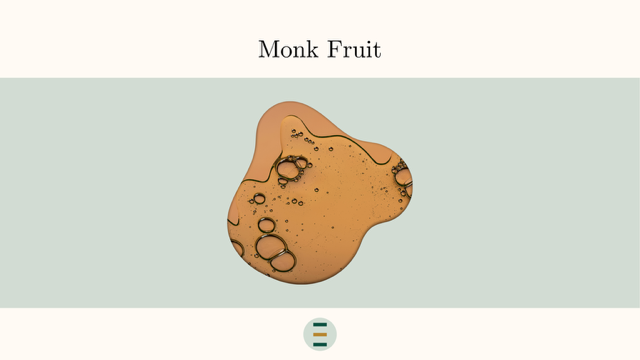When it comes to choosing a sugar substitute, many companies, and people, opt for stevia as an alternative. While some praise this sweetener for its natural qualities, there are several reasons why you should avoid consuming stevia and look for monk fruit instead.
For starters, stevia is extracted from the Stevia rebaudiana plant, which means that it contains the chemical compound known as steviol glycosides. When consumed in large quantities, these compounds have been linked to potential side effects such as bloating, nausea, diuretic effects and dizziness.
Moreover, due to its extraction process with alcohol or water solvents such as methanol or ethanol, many health experts warn against the consumption of stevia. This is because the solvents used to extract stevia can leave behind traces of toxic compounds which, when consumed in large quantities, may pose health risks.
Stevia has been linked to potential interference with hormones produced in the body as well. For example, one study found that high doses of stevia can affect the natural production of testosterone, which could lead to fertility issues. Additionally, there have been reports of adverse reactions when consuming stevia with certain medications, such as birth control pills.
Companies may choose to use stevia because of its low glycemic index, which makes it attractive for those who are trying to manage their blood sugar. However, this does not necessarily mean that it is good for weight loss or other health benefits. Despite its low glycemic index, stevia contains empty calories which can ultimately lead to weight gain if consumed in large amounts.
For these reasons, it is best to avoid consuming stevia and opt for products that contain monk fruit instead. Monk fruit extract is gaining more and more attention as an alternative sweetener. It is naturally extracted without the use of solvents, and it does not contain any chemical compounds which could pose any health issues.
Monk fruit has been proven to be safe for consumption with no potential side effects or health risks. It’s derived from the Luo Han Guo plant and contains zero calories, carbohydrates or sugar. Many studies have shown that monk fruit extract can help boost metabolism. Research has also shown that consuming monk fruit extract may help reduce the risk of chronic diseases such as obesity, diabetes, and even cancer.
As the best alternative, all natural sweetener, monk fruit extract has a higher antioxidant content than stevia as well. As such, it is often chosen by companies looking to provide a healthier, high-quality, sugar alternative in their product.
When it comes to selecting a sugar substitute, stevia may be cheaper than monk fruit but it is by no means the healthier option. While it may have its own uses, companies should opt for monk fruit extract instead. After all, we only want to consume what’s best for our bodies, right?
Overall, in searching for the perfect company to back, especially for a liquid multivitamin or energy drink, check the ingredients list and ensure the quality is there. With its higher antioxidant content and potential health benefits, companies should use monk fruit extract as their preferred choice in order to provide a healthy and natural sweetener without the potential risks associated with stevia.
Monk Fruit For The Win! Cheers to YES!

